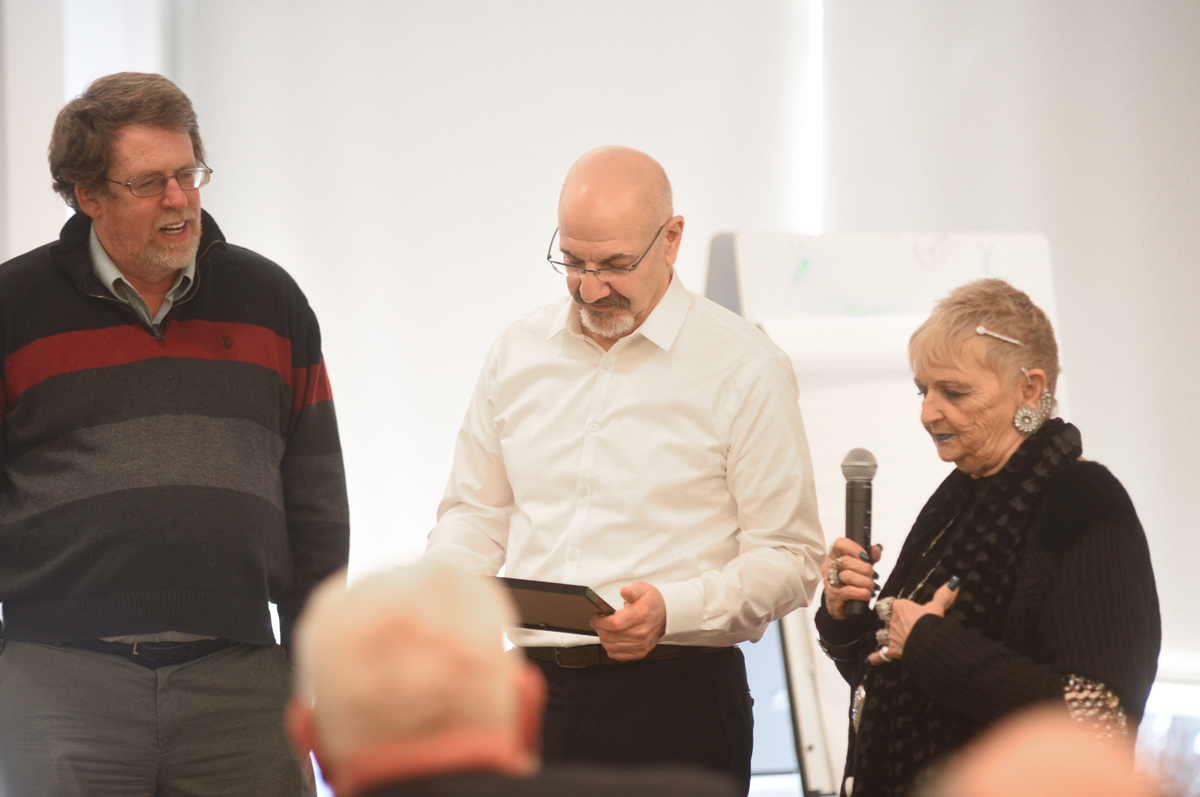<< Back
Turning Recovery into a Vocation

March 12, 2019
On the darkest days of his week-long hospitalization at Natchaug, Robert Belenchia talked to people.
Diagnosed with general anxiety, attention deficit hyperactivity disorder (ADHD) and major depressive disorder, Belenchia had checked himself into the hospital after isolating himself for weeks in his Norwich apartment. Many of the people around him at Natchaug, though, did not want to be there.
“I told myself, ‘I’m going to start talking to people – everyone! I’m going to get everything I can out of this experience,’” he remembers. “I just found myself talking to everyone!”
Belenchia also talked to staff, asking whether they ever invited people in to share their personal stories. One staffer suggested he look into peer counseling and, with a little research, he found Recovery University, a state-wide program that trains people with a substance abuse and/or mental health background to work with people new to recovery.
Recently, Belenchia and others graduated from Recovery University in a ceremony at Hartford HealthCare’s System Support Office in Norwich.
“Achieving this certificate is one of the biggest things I’ve ever done for myself in my life,” Belenchia said, noting that before he knew he had ADHD, he enrolled in and dropped out of college and massage therapy school.
It’s a feeling Dr. Karen Kangas, director of recovery and family affairs for the Behavioral Health Network, completely understand. Diagnosed with bipolar disorder and struggling with alcohol addiction, Kangas lost her career as a school principal. She now facilitates Recovery University, which she developed, through Advocacy Unlimited.
“There are several keys to recovery – especially the patient/clinical relationship and compassionate care, which includes kindness, dignity and respect,” she said. “Recovery University is a way for clients to develop relationships with others who are going through mental health and addiction struggles, and give them the tools to succeed going forward, tools that haven’t always existed.”
The 57-year-old Belenchia is now doing a resume and applying for jobs, having retired from the pharmaceutical industry to pursue peer counseling full time.
“At Natchaug, the biggest breakthrough was finding out I wasn’t alone with this depression and feeling of isolation,” he said. “It’s a new life and it’s a little scary, but I always felt that if there was someone who was suffering, who needed help, I’d be there.”
Devon Lawless graduated with Belenchia and shares his feeling of excitement at the possibilities now available to her. In her 39 years, she had several hospitalizations for bipolar disorder and its psychotic features and paranoia. During a spate of personal change – buying a house and starting a business – she neglected her medications and found herself at Natchaug.
Always artistic, Lawless said she was inspired by art therapy sessions in the hospital.
“I was not progressing at all until I took art therapy,” she remembered. “It totally opened doors for me and I was able to show my family my art when it was hard to explain my feelings.”
Sitting with paper and colored pencils or markers is therapeutic for her.
“I just lay it all out there. It’s as impulsive as it gets – it just flows out of me,” Lawless explained. “The self-reflection afterward is so important – to look for clues and meaning from the creative conversation I have with myself.”
A Natchaug therapist mentioned peer counseling to her and she said, “I couldn’t believe there could be a job where you have a hospitalization in your background and they want you!”
She is also working on a resume and job applications, but has another endeavor stemming from her Natchaug stay. On the first floor of her Willimantic home, she opened Make or Break Art Studio where she offers classes and art mentoring for children and adults. The schedule includes a monthly group for women with bipolar and a SPAH – Soberoke, Potluck and Art Hang – Night every other Friday.
“The name has more than one meaning, but I say I need to make art so I don’t break down again,” Lawless said. Her passion is evident in a post on the studio’s Facebook page, “When you’re brave, you empower others around you to be brave too.”
“It’s a privilege to be able to make a difference in someone’s life and lead them to a path that’s similar to mine, show them that it’s possible,” Lawless said.
For more information about help for mental illness and addiction, go to www.hhcbehavioralhealth.org.